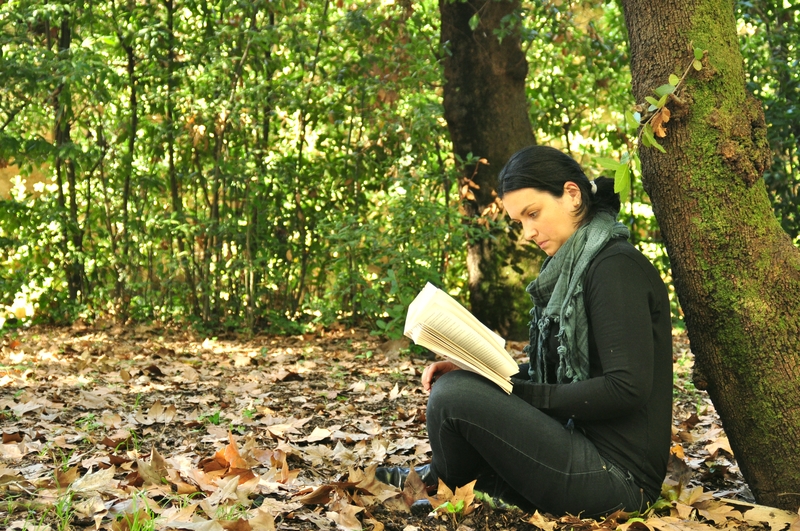Reading has always been an outlet for me – a way in which I found the words when I did not have any myself. I connected with thousands of stories and imagined myself as a myriad of characters. I used to agonize over which books to part with and which books I would keep forever. I had dreams of being a writer for as long as I can remember. In fact, that would still be my ‘dream job’ answer to this day. Here I am writing once more.
Reading is so essential to me because it is a two-for-one special, a double-whammy of a DBT Skill. For starters, it is a great distraction. A genuinely engrossing novel can keep you entertained for hours. I have stayed up way too late trying to find out ‘what happens.’ Reading helps us to create new emotions, new understandings, and gives us something new to focus on. It’s an excellent distress tolerance skill. When our own problems are overwhelming, we can quickly dive into our favorite mystery or fantasy novel.
While we all can improve our distress tolerance skills, I read for a very different reason. What’s brought me back to reading, again and again, is because it teaches me the DBT Skill of self-validation. The emotions that riddle the pages of all books taught me, ‘Yes! Oh, my gosh! People feel things this deeply too.’ Reading helped me learn that all my emotions and thoughts are valid even if they ‘don’t make sense.’ It gave me space to understand how emotions come to be. I did not judge the characters in my books and tell them to be different. I rooted for these characters, I cried with them, and I felt with them. Through them, I learned that I can feel for me too.
Validating ourselves allows us to accept our emotions as they are. As a little girl, I often remember getting told ‘not to cry’ and that I was ‘too sensitive.’ Invalidation creates confusion, and it can cause us to withhold our emotions and may create unsustainable patterns like perfectionism or emotional outbursts.
Think of the last time you felt validated – what was that like? Now, imagine what it could be like to validate yourself. Pudge and Alaska from Looking for Alaska felt things just like me. I learned to accept myself by knowing that someone else thinks and feels like I do.
We can change our own story by noticing and changing our patterns caused by years of self-invalidation. Once we accept our emotions, we can begin to change them and our faulty beliefs. Consider the words of Sylvia Plath as you start to validate yourself: “I took a deep breath and listened to the old brag of my heart. I am, I am, I am.”
First, we must notice our emotions following an event and if we have any judgments about this emotion. Let those judgments go and allow your feeling to just exist. Be mindful of your thoughts and body sensations.
Second, notice shame and judgments and check the facts. Have I transgressed my values? Block out judgmental words like ‘should, jerk, or idiot.’ Trust and listen to your primary emotional reaction. It’s there for a reason.
Third, tell yourself, ‘My emotions are valid just as they are, and I can think of what I want or need right now.’ Take a moment to consider all the facts, wants, and needs in this situation.
Finally, allow yourself to be who you are. Feel your feelings and soothe yourself if needed. Re-engage and make a choice as the valid and worthy person you are.
There were so many times I found solace in a book, and in a character who was just like me. I am positive there is a character in some fictional universe who feels exactly how you feel. Literature is full of passionate and emotional characters. We can be just like these people and learn to create a story that is worth living.

